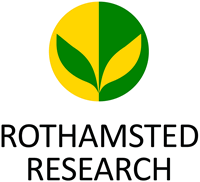Dr P Neve, Dr D MacGregor
No more applications being accepted
Competition Funded PhD Project (European/UK Students Only)
About the Project
Weedy plants provide one of the most intriguing and economically-important examples of rapid evolution in response to human-directed selection pressures. In the UK, and across much of Europe, the grass weed, Alopecurus myosuroides (black-grass) causes £100s of millions in lost yield of cereal crops and associated control costs. The species is undergoing a range expansion in Europe, driven by changing farming practices, the evolution of resistance to herbicides, and possibly, climate change. It is critical to understand the ecological genetics of major weeds, such as black-grass to be able to design and deploy sustainable weed management strategies. At Rothamsted, we have access to a large collection of wild black-grass populations. Importantly, we have extensive historical management and environmental data for each fieldcollected population, providing critical metadata to quantify the historical and contemporary selection pressures acting on these populations. We have also generated a range of F1 and F2 pedigreed seed families for genetic studies. The Neve group at Rothamsted is working with collaborators to generate a reference genome for black-grass which should be available during the first year of this PhD project.
This exciting, interdisciplinary PhD opportunity will integrate techniques from plant ecology and evolution with quantitative, population, and molecular genetics. You will benefit from training in state-of-the-art bioinformatics and statistical genetics techniques. There will be several integrated strands of research including: common garden and controlled environment experiments to measure intra- and inter-population variability in life history traits; statistical analysis to relate trait variation to herbicide resistance status (to explore trade-offs), geographical origin and historical selective environment; selection experiments to expose populations to directional selection for extreme life history trait values; genomic scans (e.g. Genome-Wide Association Studies) to determine the genetic architecture of life history traits; and molecular genetic studies to functionally characterise candidate loci underpinning life history variation.
Funding Notes
Applicants must have, or be about to obtain, a First or Upper Second Class UK Honours degree, or the equivalent qualifications gained outside the UK, in an appropriate area of science or technology.
Funding provides a stipend at the standard UKRI rate (currently £14,777), research and training costs and UK/EU tuition fees for 4 years.
UK and EU applicants who have been residing in the UK since September 2016 will be eligible for a full award. Non UK/EU applicants are not eligible for funding.

 Continue with Facebook
Continue with Facebook

